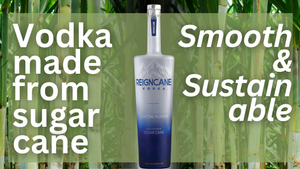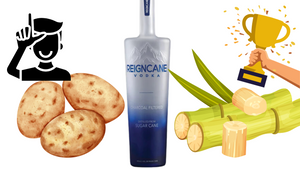Introduction
Vodka, a beloved spirit enjoyed worldwide, boasts a rich and fascinating history. But when exactly was vodka invented? Pinpointing the precise moment of its creation is a complex task, as the origins of this clear spirit are shrouded in myths, legends, and historical debates. In this article, we'll embark on a journey through time, tracing the evolution of vodka from its early beginnings to its modern-day incarnation.
Early Distillation Practices and Proto-Vodkas
The roots of distillation, the process essential for creating vodka, can be traced back to ancient civilizations. Evidence suggests that the ancient Egyptians and Mesopotamians experimented with distillation techniques as early as the 2nd millennium BC. However, the spirits produced during these times were likely crude and vastly different from the vodka we know today.
By the 8th century AD, distillation practices had spread to Europe, where alchemists and monks were experimenting with various ingredients and techniques. These early distillates, often referred to as "aqua vitae" or "water of life," were primarily used for medicinal purposes.
The Emergence of Vodka in Eastern Europe
Vodka as we know it began to take shape in Eastern Europe, particularly in Poland and Russia, around the 14th and 15th centuries. The term "vodka" is derived from the Slavic word "voda," meaning water. Early vodkas were often made from fermented grains, such as rye or wheat, and were characterized by their high alcohol content and relatively neutral flavor.
During this period, vodka was primarily consumed by peasants and lower classes, while the nobility favored wine and other imported spirits. However, over time, vodka's popularity grew, and it eventually became a symbol of national identity in both Poland and Russia.
The Rise of Commercial Vodka Production
In the 18th and 19th centuries, vodka production shifted from small-scale home distillation to large-scale commercial operations. The invention of the column still, a more efficient distillation apparatus, revolutionized vodka production, allowing for greater consistency and purity.
With the advent of commercial production, vodka became more widely available and affordable, leading to a surge in consumption across Eastern Europe and beyond. Vodka's popularity further increased as it became a staple ingredient in various cocktails and mixed drinks.
Vodka's Global Expansion
In the 20th century, vodka's popularity spread beyond Eastern Europe, gaining a foothold in Western markets. The neutral flavor of vodka made it a versatile base for cocktails, and its association with sophistication and glamour further fueled its appeal.
Today, vodka is one of the most popular spirits globally, with countless brands and varieties available. It is enjoyed in a myriad of ways, from classic cocktails like the Moscow Mule and Bloody Mary to modern mixology creations.
The Ongoing Debate Over Vodka's Origins
Despite vodka's long and storied history, the exact time and place of its invention remain a subject of debate. Both Poland and Russia claim to be the birthplace of vodka, and historical evidence supports both claims to some extent.
Some historians argue that Poland was the first to produce vodka, citing early references to distilled spirits in Polish texts from the 14th century. Others contend that Russia was the true pioneer of vodka, pointing to the development of large-scale commercial production in the 18th and 19th centuries.
Regardless of the precise origin, it's clear that both Poland and Russia have played significant roles in shaping the history and culture of vodka.
Conclusion
The question of when vodka was invented doesn't have a single, definitive answer. The origins of this beloved spirit are intertwined with the history of distillation, the evolution of cultural practices, and the development of commercial production.
While the precise moment of vodka's creation may remain elusive, its enduring popularity and global significance are undeniable. Whether enjoyed neat, on the rocks, or in a cocktail, vodka continues to captivate drinkers worldwide with its versatility and timeless appeal.







